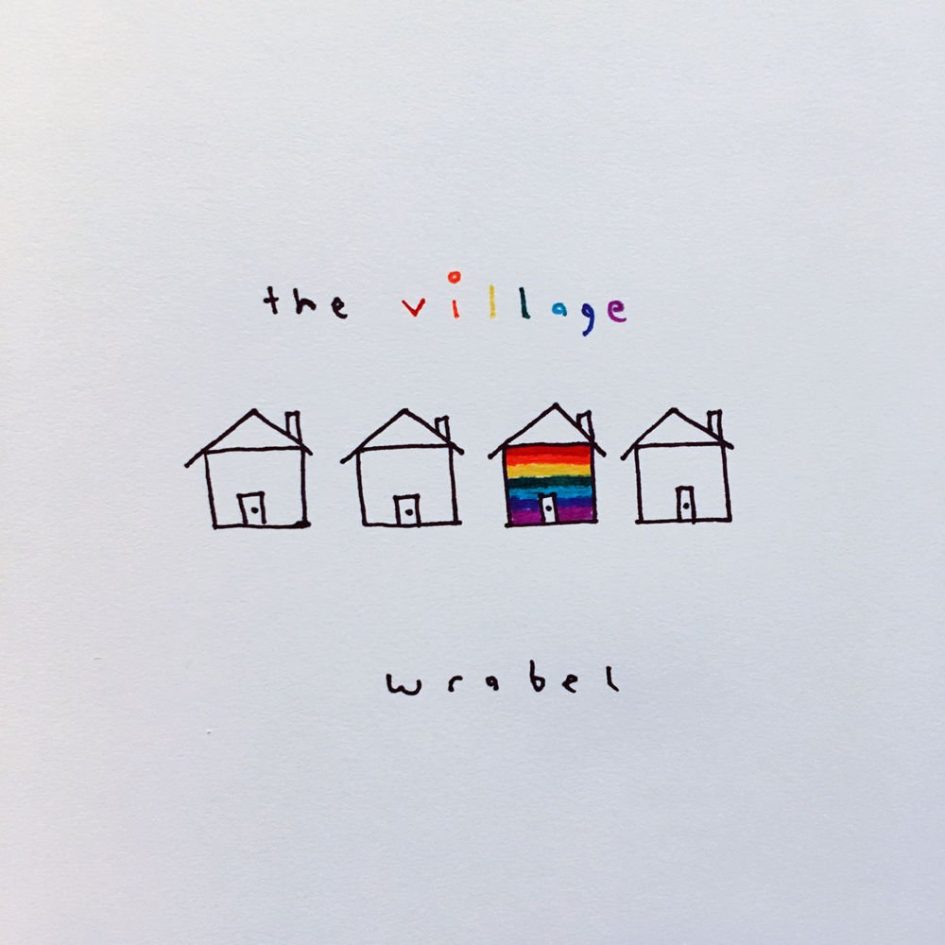“The Village” was written and released in 2017, largely as a response to the way transgender people are treated in our society, and specifically due to actions taken by the Trump administration that removed federal protections in public schools for trans students. According to Billboard, the music video that accompanies it was pushed forward in its release due to a subsequent Trump ban on trans people in the military, and the video actually features this announcement. The lyrics of the song generally encompass the LGBTQ+ experience in the US, but it focuses especially on the trans experience and the toll it can take on a person to be surrounded by bigotry. “The Village” is very much connected with the movement for trans rights; the end of the music video displays the hashtag #TransRightsareHumanRights. More broadly, the song is a sort of ode to anybody in the LGBTQ+ community, which is illustrated in the theme of colorful birds that is displayed in the video and another statement that is show at the end of the video: “Dedicated to all the colorful birds.”
The song comes at an apt time; the Human Rights Campaign reported in September of 2018 that “More than half of transgender male teens who participated in the survey reported attempting suicide in their lifetime, while 29.9 percent of transgender female teens said they attempted suicide. Among non-binary youth, 41.8 percent of respondents stated that they had attempted suicide at some point in their lives.” Additionally, the Trevor Project reports that LGBTQ+ youth as a whole contemplate suicide up to three times more than heterosexual youth, and are five times more likely to actually attempt suicide. These are staggering statistics, and Wrabel’s song is an attempt to combat the narrative that LGBTQ+ people are fed by the world around them. One major hope is that even through the slew of bigotry (especially that based in religion), this lyrically and sonically powerful song will convince people that their life is worth living, and that there is somewhere they belong.
Integration of all of this into “The Village” isn’t necessarily overt or subtle; Wrabel’s lyrics specifically mention the kinds of disapproval that trans people can and do experience from even their loved ones, the lack of understanding. Another large facet of the song is criticism of the Church and its role in this bigotry, as well as the hugely negative effects religion can have on a person in the LGBTQ+ community. In the same Billboard article, a quote from Wrabel reads: “This song is the most important thing to me that I have ever done and probably will ever do. It’s the closest thing to my heart. I came out as gay around 23 into a church in Los Angeles that told me I could and should change; that I was unnatural and wrong. I hope this reaches anyone in need of it and makes them feel like they’re not alone.” One lyric of the song that explicitly tells the listener how Wrabel feels about this comes at the end of the second verse, when he sings “It’s a lie though / Buried in disciples / One page of the Bible isn’t worth a life.” In many ways, the song pushes back against both Church and state and affirms LGBTQ+ people that, even though there are people with more power trying to invalidate them or erase their existence, that the problem lies in these power structures and not in the people they target.

February 25, 2020 at 10:44 pm
Nate,
This is an excellent post that is getting into the horrific realities facing transgender youth and that transgender adults faced throughout their lives. These stats will find their way into your podcast, I’m sure, and you’ll need to be even more overt with the stories you tell.
Bill